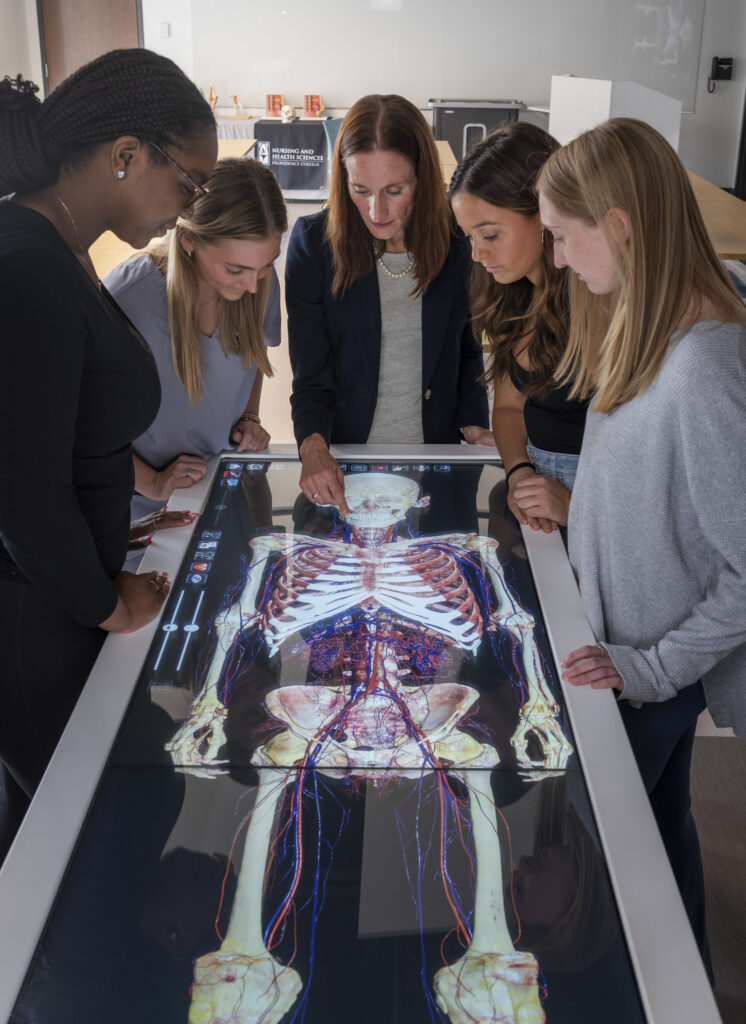Ben Mondor Center for Nursing and Health Sciences
Introducing the Ben Mondor Center for Nursing and Health Sciences
On the first day of the spring semester, the entire campus community celebrated the official opening of the Ben Mondor Center for Nursing and Health Sciences. This state-of-the-art facility marks a significant milestone in the advancement of nursing and health sciences at Providence College, providing students with a space for innovation, collaboration, and academic excellence.
Construction Drone Video Recorded – 11/5/24
On November 5, 2024, crews captured aerial footage of the construction of the Mondor Center for Nursing and Health Sciences.
For comparison, this was exactly one year prior.
Technology in the Classroom
Preparing PC students to excel in highly technological environments is essential. The School of Nursing and Health Sciences — in collaboration with our faculty, campus IT partners, clinical partners, and industry specialists — aims to drive educational technology innovation inside and outside of the classroom. Our pedagogy centers on hands-on experiential education that incorporates technology to advance learning outcomes.

First-year students immediately engage with an Anatomage Table, the most technologically advanced anatomy visualization system on the market. It contains a virtual library of human cadavers, as well as provides a clinical diagnostic tool utilizing visualization of any Medical CT, CBCT, or MRI scan.
Additionally, students and faculty utilize breakthrough augmented and virtual reality simulations that are rapidly expanding approaches to healthcare education. These computer-generated immersive environments prepare students at all levels for real-life experiences and further our understanding of healthcare practices.





